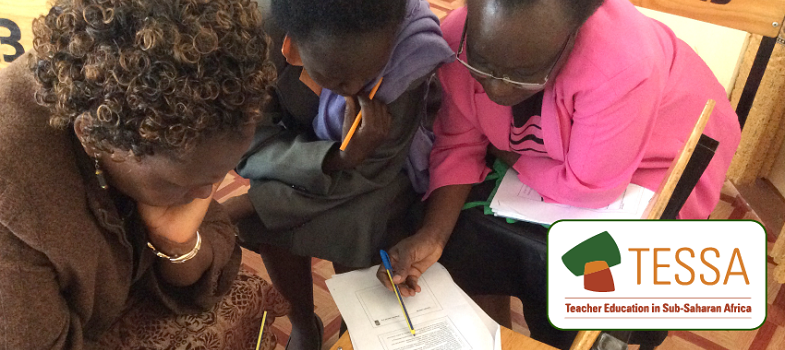2. Working in groups to write a praise poem
Praise poetry and singing is an important African practice, past and present. African names carry stories of who you are and where you come from. They tell people about your experiences, your joys and struggles, and what you are like, so that others can know you. People create their own praise songs. Praise poets perform at ceremonies, rituals and festivities to praise a person or group. Praise singing and poetry has become a sophisticated art form, practised in many cultures through music, dance and chanting.
You will help pupils research and create their own praise poems or songs, focusing on the communication of identity and family heritage. This will enable your pupils to make connections between themselves and musical practices.
Case Study 2: Using praise poems to develop musical understanding
Mr Ekadu is a musician and arts and culture teacher who grew up in Soroti district in eastern Uganda. He teaches in an urban primary school, where his pupils represent many cultures, religions and languages.
He is playing an old Iteso song on his guitar as he thinks about his music lessons for the coming month. How will he develop the theme of identity using music? As he sings, the music takes him back to his childhood, his home, parents and grandparents. He remembers hearing naming songs and praises as a child. He remembers his own naming song that tells of his birth and ancestry. His memories form the beginning of an idea for his class.
Mr Ekadu collects some praise poems and songs and devises questions about them. He listens to the songs’ call-and-response structure and links this to a familiar naming game his pupils play in the playground. He plans to do a lesson on praise poems beginning with a familiar song. Next he encourages his class to produce and perform their own praise poems and songs about their friends.
See Resource 4: Praise singing for more background information.
Activity 2: Praise songs and poems
Before this activity, look at Resource 5: Pupil praise songs.
- Sing a praise song you know to your class or ask a pupil to sing to the class. Explain to them how the structure of the song works and get them to join in the responses.
- Sing the song again while pupils keep the beat by clapping, tapping or using their instruments.
- Talk with them about the idea of a praise song, who sings them and why.
- Say a praise poem together, paying attention to the rhythm of the words and communicating the feeling of the poem with your voice. Add instrumental sounds that enhance the poem’s mood if possible.
- Next, divide the class into groups of six. Ask each group to work in threes and write their own praise poem. Each three should perform their poem to the other three and then explain the meaning of and feelings in the poem. Together, the whole group chooses a response line to chant in between the individual lines and they practise their two poems. They can add other sounds if they like.
- Over the next few days, ask each group to perform their praise poem to the rest of the class.
1. Using mind maps to organise thinking about sound



